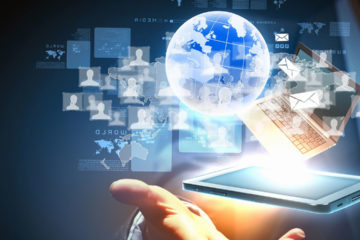The Digital Revolution is perhaps the greatest change from traditional, analog electrical and mechanical digital technology to digital electronics that began in the later half of the twentieth century, with the widespread adoption and widespread use of digital computers and personal digital record-keeping, which continues on to this day. This is arguably one of the biggest changes in communications technology and also one of the most significant. It is changing the way companies and governments to communicate and the way we do business. This is because it is now possible to transfer any form of data - audio, video, and information - across very long distances without losing the information or changing the form of the information. What exactly is the digital revolution? Below is an explanation.
The term digital revolution is now used widely in many fields of academic libraries and reference work. There are two distinct aspects to this phrase. One is the impact of the digital revolution has made on the field of information and technology studies. The second is the impact that digital technologies have had on the field of reference work. The impact has been profound, yet there have been efforts to preserve the use of digital technologies for reference purposes. The preservation effort is a product of both the digital revolution and the efforts of scholars concerned with preserving the past.
What was the digital revolution? Basically, it was the shift from a world where information was stored in stacks and cabinets as analog information, and in a form of magnetic tape, to a world in which information was stored electronically. The change brought major improvements in computer systems. It gave people the opportunity to access previously difficult-to-obtain information. It allowed easy transfer of data between computers, networks, and other technologies.
The digital revolution affected many facets of life. In academic libraries, the ability to make digital libraries of all that was available to a discipline was a boon. In general, it is said that the creation of digital libraries transformed the entire field of reference work in virtually all disciplines. While the invention of digital libraries changed the field of reference work, it also changed how we used reference materials in our day-to-day lives.
One area in which scholars should be especially interested in studying the digital revolution is in the area of technical studies. The Bell Labs had an interesting article in Science News Online in November. The article discussed the impact that the digital revolution had on scientific research. The Bell Labs noted the fact, “Users have significantly increased the speed of which they read a scientific paper-an effect that may well result in less peer review, higher publication rates, and greater openness.”
The Bell Labs authors continued on to note that while the internet provided users with the ability to quickly and easily obtain scientific data, the Bell Labs researchers noted that even the internet has some limitations. They pointed out two main problems in using the world wide web for scientific purposes. One of these problems is that while the world wide web makes access to databases of scientific information far more accessible than ever before, the world wide web also makes information more difficult to access. This means that users will need to make a more creative search for scientific data.
In addition to this problem, another drawback is that the Bell Labs researchers noted that the use of electronic information sharing will only grow as information sharing through other sources becomes more commonplace. The Bell Labs authors also noted that in order for the United States to continue to have a competitive edge over the rest of the world, it is necessary for the United States to continue to improve its ability to provide access to information at faster speeds. In other words, the information sharing problem will not go away. However, it is believed that researchers can continue to solve problems related to the digital revolution and information sharing until such time that the average user is able to access and download a standard size information file from their personal computer.
The researchers at Bell Labs also noted that the use of analog electronics will not disappear entirely, but they did predict that the future will see most electronic devices being powered by something more akin to analog circuitry, but powered by digital technology. The prediction for the future of analog electronics, and it holds true today. It is expected that within the next five to ten years, most all analog devices will be replaced with digital devices. However, it is still expected that in the years to come, your digital devices will be powered by an improved form of analog technology. Whether this new technology will be better or worse than analog is not yet known, but it does look as though the analog computer will be forever gone, and the digital computer will become the primary means of computing on your personal computer or laptops.


